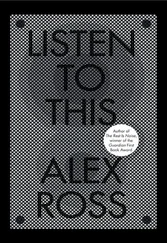“I could have died,” she said. She moved for the knife. Mark grabbed it before she could. “I could be dead right now.”
“Is this about the college girl?”
“Right now,” she said, “you could be a widower.”
“It wasn’t even the same man,” he said.
“It could have been.”
Mark shook his head. What she was saying was crazy. What she was saying was downright lunatic. “But you’re not dead. You’re here. You’re right here.”
“But what if I weren’t?” she said. “What if I weren’t here?”
When he told her no more knives, when he told her he drew the line at weapons in the bedroom, she shrugged again. “If you don’t give it back, I’ll just buy another one. Play it how you want.” It was maddening that she refused him the discussion.
Normal people didn’t waste their days reading about other people’s misfortunes. Normal people didn’t take a gross sort of pleasure in keeping up with local crime statistics. Normal people didn’t walk the dog in a robe. Normal people didn’t act like Maggie.
The semester would be over in a few weeks, at which point the two of them would make their annual drive east for a couple months at Mark’s parents’ farm. His hope was to finish several chapters of his latest manuscript, a history of anonymity, which he believed — if pulled off correctly — might put him on the academic map in a major way. But Mark didn’t think he could wait another few weeks to make the drive. He was frightened by what Maggie was capable of. He’d found the mace. He’d found the application for a gun and that terrifyingly sharp little switchblade. But what might she bring home next? What might already be hidden that he hadn’t yet found?
Mark understood — a sort of hammer-to-the-skull-type realization, as Maggie walked out of the kitchen, leaving him alone with the knife and its distressing string attachment — that his wife must be removed from the city immediately. Distance needed to be created between Maggie and her desire for blades, guns, and even the Internet. A return to nature — to Wordsworth’s meadow, grove, and stream — was essential for them both.
When Mark went out with the dog that night, he called his mother.
“We’re coming this weekend,” he said.
In the background, he could hear his father knocking about loudly with the evening’s dishes.
“Is it June already?” his mother said. “Am I losing my mind?” Then, before Mark could answer, she said to his father, “Mark says they’re coming this weekend.” Then, after a pause, she said to Mark, “Your father wants to know about classes.”
“We’re going into finals,” he said. “I’ll get a grad student to administer them. It’s fine.”
There was another back-and-forth between his parents, along with more clanging and clattering of pots and pans. His mother again: “Your father says that’s cheating the students.” Mark’s father was a retired professor. He’d been a trailblazer in the field of eco studies and was now emeritus faculty at the University of Virginia, something that filled Mark with equal parts satisfaction and envy. It occasionally disappointed him — thinking he’d never have a son of his own who might eventually entertain such complicated feelings about him.
“Remind him I have tenure,” Mark said. “Is the cabin ready?”
“It’s always ready.”
Mark had expected pushback from Maggie when he told her, later that night, of his decision.
Instead, she looked up from her laptop and said, “I like this on you.” She’d changed from jeans into loose-fitting sweatshorts and was sitting cross-legged in bed, on top of the covers. Wedged beneath her thigh was a copy of that test she’d taken. It was open to a dog-eared page. Several answers had pencil annotations beside them.
“You like what on me?” Mark unhooked Gerome’s leash, and the dog went instantly to Maggie, hopping up and circling into place at the foot of their bed.
“Spontaneity.”
He wondered if she was fucking with him.
Three days later and Lake Shore Drive, like they both knew it would be, was a mess.
By the time Gerome had done everything he needed to do and by the time the car was packed, the apartment locked up, the trash and recycling taken out, they were practically begging to coincide with the weekend rush hour. And they did.
“Fuck,” said Mark. The traffic came to a standstill at Belmont. They’d gone only three miles. “Fuck. Fuck.”
Gerome stood up in the backseat.
“When you’re tense,” said Maggie, “it makes him tense. Dogs are mirrors of their owners.”
She turned around in her seat and tried to coax Gerome into sitting, but he whined and stayed standing.
“I can’t see,” said Mark. “If he’s like that, I can’t see anything out the back.”
“We’re not moving,” she said. “When we start moving, he’ll sit down.”
A car nearby honked. Another followed suit. Gerome whined again.
“We won’t be there until after midnight,” said Mark. “Plus we lose an hour. Fuck.”
Maggie was still jackknifed in her seat, trying to calm the dog. “We’ll make it,” she said. “We always do.”
Gerome reluctantly curled himself into a ball.
“We can get a hotel,” said Mark, “if we have to.”
“Gerome can’t handle a hotel,” she said. “You know that.”
“He’s a dog. He’ll handle what we tell him to.”
In fact, Gerome was a disaster in hotels, and Mark knew it. The one time they’d forgotten the sound machine — an attempt at a last-minute romantic getaway to Nashville last year, pre-mugging — they’d had to leave the shower running and the television on all night. Mark had tried repeatedly to initiate sex, but Maggie — normally so keen, still, after all these years — was too focused on the dog’s discomfort to focus on him. So they’d turned on the shower and the television because it was the only way Gerome would shut up. In the morning they drove back to Chicago, overtired and newly distant. But Mark, as a point of pride, liked to assume that the last time would be, well, the last time. He liked to assume the next time would be better. That’s the kind of guy he was — always looking ahead, always looking up, which was what he’d been trying to do with Maggie. But she was making it hard. The world — those cops, that college girl, the media itself — was conspiring against him.
A few miles east of where Mark and Maggie’s car was currently at a standstill—925 feet below the surface — was the deepest point of Lake Michigan. At the bottom of the lake, pitch-black, there exists a vast world of hidden networks and drowned river channels, evidence of a catastrophic overflow from Superior into Michigan during the Holocene times, which is to say the geological epoch some 11,700 years BP, which is to say before present, which is also to say before physics, which is the time before nuclear testing, which is the time after which carbon isotopes in the atmosphere were artificially altered, rendering time — its accurate apprehension — untrustworthy.
Maggie scratched the dog’s head and turned forward. “We won’t need a hotel,” she said. “I promise.” She adjusted the a/c vent, closed her eyes, and angled her face so that the current pushed her hair away from her forehead. “Mmm,” she said, suddenly so calm, so Zen.
It was like—
It was like sometimes — these last three weeks especially — he was living with a stranger. Sometimes, just looking at her, it was like he didn’t recognize a single thing about his wife.
They cleared all three exits for Gary without saying a word. Mark pretended he didn’t even notice. Maggie stared out the window as the city passed below them. Gary wasn’t just a place to die. It was, as far as she was concerned, a place to be killed. It was a place to hate your life, a place to sweat your day away in an attic apartment while you listened to dogs fight to death in the alley. It was in Gary that a shallow grave had been discovered just that spring. The body belonged to a fifteen-year-old boy. He weighed less than fifty pounds. She’d read all about it: his parents had kept him outside, in a cage. Bad things happened in Gary.
Читать дальше












